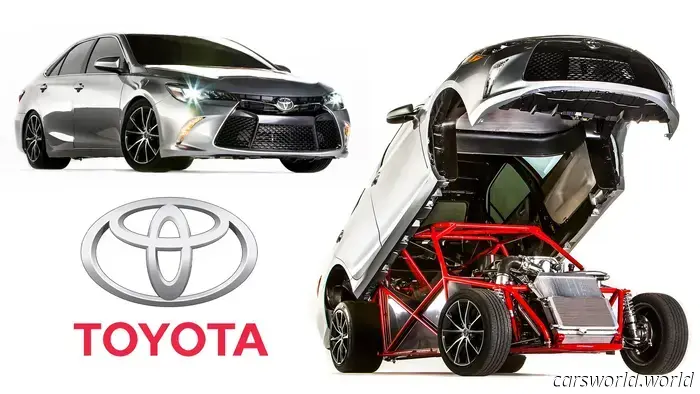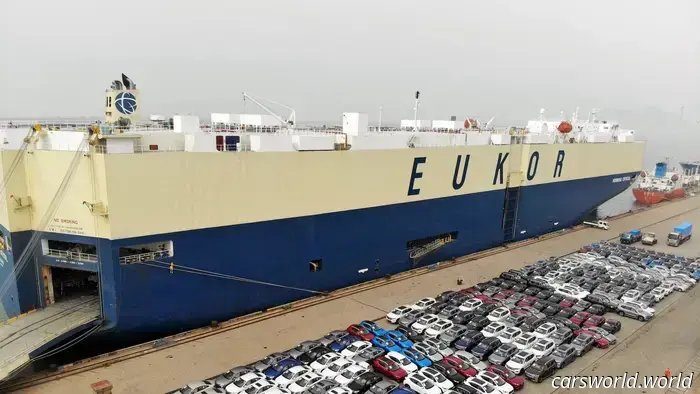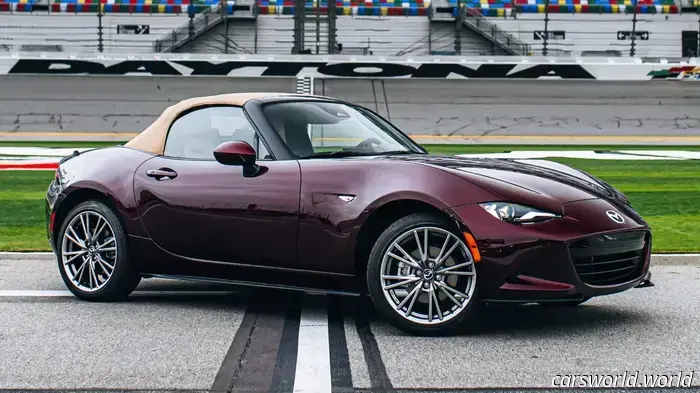
Buick's return is facing significant challenges due to tariffs.
2024 Buick Envista. General Motors
Sign up for The Drive Daily
Buick has worked for years to move away from being seen as a secondary brand merely filling the gap between Chevrolet and Cadillac. The company has been making significant strides, aided by a major revamp of its product lineup. Sales increased by 39% in the first quarter of 2025, but the White House's tariffs on imported vehicles could jeopardize this growth. The three top-selling models from Buick are all manufactured overseas.
In the first quarter of 2025, Buick sold 61,822 vehicles, compared to 44,385 in the same period in 2024. Executives have legitimate reasons to feel both proud and relieved: Buick has experienced nine successive quarters of year-over-year growth, with over 50% of its sales coming from buyers outside the General Motors family. However, it appears that the brand's positive momentum may soon be halted.
The three best-selling models for Buick in Q1 2025 were the Encore GX (20,408 units), the Envision (15,485 units), and the Envista (14,862 units). Both the Encore GX and the Envista are produced in South Korea, while the Envision is produced in China, making them subject to hefty tariffs. Buick faces a 27.5% tariff on every Encore GX and Envista imported, and the Envision is now hit with five tariffs totaling 95%.
Dealers nationwide are holding an above-average supply of new, tariff-free Buick models at 82 days, but someone will eventually have to account for the tariffs once this stock is depleted. Analysts believe that passing on these additional costs to consumers could negatively impact Buick's sales.
"The latest wave of Buick vehicles is affordable, good quality, and decent. Introducing a cost disadvantage could jeopardize Buick's presence in the U.S. market," stated Sam Fiorani, vice president of AutoForecast Solutions, in an interview with Reuters.
Affordability is a crucial element of Buick’s success. By offering "nice cars at an affordable price," Buick has carved out a space between Chevrolet, focused on mainstream markets, and Cadillac, which is entrenched in the luxury segment. Adding a 27.5% tariff, let alone a 95% tariff, undermines Buick's current appeal.
"Building locally" is the apparent solution, but it is more complex and time-consuming than many might think. This would involve identifying additional production capacity in one of General Motors' U.S. plants and establishing the necessary tooling to manufacture the three crossovers. While it may be beneficial in the long run, the brand would likely face challenges during the interim period before those domestic production lines are operational.
British bank Barclays anticipates that automakers significantly affected by this new set of tariffs "will cease selling vehicles that cannot be sold profitably" in the U.S., according to Reuters. The bank predicts that General Motors will halt the import of approximately 450,000 vehicles from South Korea and China due to these tariffs, resulting in a 40% cut to the automaker's 2025 earnings, attributed to a $9.5 billion tariff-related impact.
Buick's troubles are compounded by declining sales in China. The brand's strong performance in the Chinese market was one of the primary reasons it avoided being discontinued, unlike Hummer, Pontiac, and Saturn, during General Motors' bankruptcy in 2009. However, Buick and similar Western brands have been affected as consumers in China increasingly opt for vehicles from local manufacturers. Buick's sales in China fell by 65% from 2020 to 2024, according to data reviewed by Reuters. Additionally, its international footprint largely ends there.
General Motors has not commented on this report, nor has it shared any strategy for navigating the tariffs with Buick.
Got tips? Send them to [email protected]




Other articles
 Toyota's Ultimate V8 Toyota Camry Sleeper Remains Among the Top Factory Builds.
We've witnessed some inventive sleeper builds, but few can compare to Toyota's 2014 SEMA project that transformed the new Camry into a 900-hp drag racing car.
Toyota's Ultimate V8 Toyota Camry Sleeper Remains Among the Top Factory Builds.
We've witnessed some inventive sleeper builds, but few can compare to Toyota's 2014 SEMA project that transformed the new Camry into a 900-hp drag racing car.
 Would you entrust your life to the Jack Rod?
For many years, DIY enthusiasts and trackside mechanics have been utilizing jack locks. When used in the appropriate context, they can be quite beneficial.
Would you entrust your life to the Jack Rod?
For many years, DIY enthusiasts and trackside mechanics have been utilizing jack locks. When used in the appropriate context, they can be quite beneficial.
 The Italian Job: $218K Ferrari Roma Vanished While Heading to Dealership
A federal lawsuit filed by the dealer alleges that a bogus shipping company intercepted the Ferrari, which has yet to be found.
The Italian Job: $218K Ferrari Roma Vanished While Heading to Dealership
A federal lawsuit filed by the dealer alleges that a bogus shipping company intercepted the Ferrari, which has yet to be found.
 New Land Rover Defender 'Sport' EV: What We Know | Carscoops
The second model in the Defender lineup will compete with the soon-to-be-released compact G-Class from Mercedes-Benz.
New Land Rover Defender 'Sport' EV: What We Know | Carscoops
The second model in the Defender lineup will compete with the soon-to-be-released compact G-Class from Mercedes-Benz.
 Inside Hyundai's 650-Foot Cargo Ship Anchored at the Largest Car Manufacturing Plant in the World
Moving 6,900 vehicles across an ocean is quite an accomplishment.
Inside Hyundai's 650-Foot Cargo Ship Anchored at the Largest Car Manufacturing Plant in the World
Moving 6,900 vehicles across an ocean is quite an accomplishment.
 Reports indicate that new Mazda Miatas are currently stranded at ports for reasons that remain unclear.
Several customers have stated that they have been waiting for weeks for their new MX-5s without receiving any updates.
Reports indicate that new Mazda Miatas are currently stranded at ports for reasons that remain unclear.
Several customers have stated that they have been waiting for weeks for their new MX-5s without receiving any updates.
Buick's return is facing significant challenges due to tariffs.
Buick experienced a 39% rise in sales in the first quarter of 2025, yet its top three best-selling models are sourced from Asia and are directly affected by tariffs.
